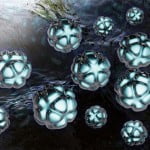
The research, led by cancerbiologist Chin-Yo Lin from the University of Houston in Texas, is published in PLOS One.
According to the team, more than 230,000 women in the US will develop breast cancer this year; it is one of the most common causes of cancer deaths for women.
Alcohol consumption is a modifiable risk factor for breast cancer development, and yet an estimated 50% of women with breast cancer drink at least some alcohol.
Given the popularity of alcohol consumption in the US, the researchers wanted to investigate alcohol’s effects on growth factor and estrogen signaling, as well as gene regulatory networks that are involved in clinical outcomes in breast cancer patients, effects of alcohol on tamoxifen response and the role that alcohol-regulated genes play in breast cancer.
Tamoxifen is a medication that is used to treat breast cancer that has spread to other parts of the body.
“We want to provide women, in general, with more information and insight to be better able to balance their consumption of alcoholic beverages with the potential health risks,” says Lin.
He adds that this includes “cancer patients who may want to take into consideration the potential detrimental effects alcohol consumption might have on treatments and modify their behavior and habits accordingly.”
‘Alcohol enhances actions of estrogen in driving breast cancer growth’
The researchers were able to establish that alcohol increases estrogen-induced cell proliferation.
In detail, they discovered that alcohol promotes expression of a cancer-causing gene called BRAF – even in the absence of estrogen – and mimics and enhances estrogen’s effects, increasing the risk of breast cancer.
They also found that alcohol weakened the ability of tamoxifen to suppress cancer cell growth.
Commenting on their findings, Lin says:
“Alcohol consumption is prevalent among women in the US and is a risk factor for breast cancer. Our research shows alcohol enhances the actions of estrogen in driving the growth of breast cancer cells and diminishes the effects of the cancer drug tamoxifen on blocking estrogen by increasing the levels of a cancer-causing gene called BRAF.”
He and his team say their findings suggest that alcohol exposure affects several cancer-related pathways and mechanisms, shedding light on the so-called cross-talk between alcohol and cancer-related gene pathways and networks.
The researchers hope their findings can be used in preventing cancer prevention, but the results are also relevant for women undergoing hormone replacement therapy for menopause; alcohol can affect the hormones women take to manage symptoms, Lin says.
Additionally, he says that college-age women could be affected by these findings, as they are often in environments where heavy or binge drinking takes place.
Lin says he and his colleagues “hope these and future findings will provide information and motivation to promote healthy behavioral choices, as well as potential targets for chemoprevention strategies to ultimately decrease breast cancer incidents and deaths within the next decade.”
Medical News Today recently reported on a cancer breakthrough, in which researchers found a cancer drug duo eradicated breast cancer tumors in 11 days.
[SOURCE :-medicalnewstoday]



